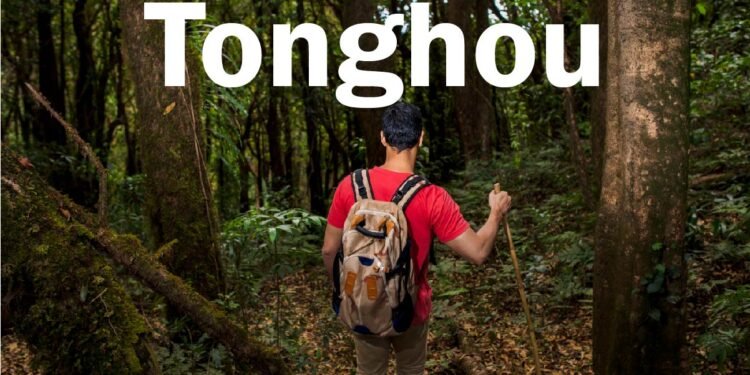Introduction
Tucked away in the lush, mountainous terrain of Taiwan, Tonghou is a serene destination that few have discovered, yet its beauty rivals that of tourist-packed areas like Wulai or Jiufen. This charming locale is steeped in history, brimming with cultural expressions, and surrounded by breathtaking nature. Unlike its more commercial counterparts, Tonghou remains an authentic and undisturbed sanctuary for travelers seeking deep cultural immersion and scenic tranquility. Known locally as a historic river town and a strategic trailhead to hiking paths that connect Taipei to Yilan, Tonghou offers visitors a harmonious blend of ancient legacy, living traditions, and eco-friendly tourism. Throughout this article, we’ll explore Tonghou’s early indigenous roots, colonial evolution, cultural artistry, must-see sites, food heritage, festivals, and sustainable tourism practices. With every step, Tonghou invites you into a story still unfolding—one that rewards curiosity, respect, and a love for nature and culture.
The Historical Evolution of Tonghou
Early Settlements and Indigenous Roots
Tonghou’s earliest history begins with the Atayal tribes, one of Taiwan’s major indigenous groups. Archaeological digs have unearthed remnants of stone tools, pottery shards, and ceremonial objects that confirm settlement here long before formal records began. The Atayal people viewed the Tonghou River as sacred, using it not only for sustenance but also as a spiritual axis. Their unique facial tattooing practices, textile designs, and animistic beliefs permeate the landscape, leaving a cultural imprint that can still be felt during village visits or forest rituals. Even today, descendants of these tribes contribute to preserving their ancestral customs by conducting storytelling walks and handcraft demonstrations.
Tonghou During the Dynastic and Colonial Periods
During the Qing Dynasty, Tonghou functioned as a vital passage between northern Taiwan’s trading outposts. The riverside location allowed the transport of mountain herbs, deer hides, and timber. Later, the Japanese colonial administration enhanced access to the region by constructing key roads and railway links. These infrastructural developments opened the valley to outside influences but also created friction between development and indigenous land rights. Notably, many of Tonghou’s colonial-era structures—such as old rail posts and Japanese-style guesthouses—still exist and are currently undergoing conservation. These remnants reveal a turbulent but fascinating history that shaped Tonghou’s complex identity.
Post-Industrial Tonghou and Preservation Efforts
With Taiwan’s economic boom in the mid-20th century, Tonghou faced increased urbanization pressure. Farmlands gave way to roads, and cultural sites risked neglect. Fortunately, community-driven preservation efforts, supported by Taiwan’s Ministry of Culture, recognized Tonghou’s unique heritage value. Today, several temples, homes, and trails are protected as heritage assets. These initiatives have sparked eco-tourism, with guided walks through restored alleyways, interpretive signs in multiple languages, and village museums that ensure Tonghou’s stories endure.
The Cultural Fabric of Tonghou
Handicrafts, Folk Art, and Symbolism
The artisan tradition in Tonghou is alive and thriving. From intricate wood carvings to bamboo weaving and embroidered textiles, the region’s craftsmanship carries deep symbolic meanings. Common motifs include river waves, mountain dragons, and ancestral emblems that tell stories of resilience and kinship. Artisans host open workshops where visitors can try their hand at traditional skills, fostering cultural exchange and economic sustainability.
Oral Histories and Storytelling Traditions
Tonghou’s oral history tradition plays a critical role in maintaining its heritage. Elders gather during community events to share myths, migration tales, and spiritual lessons. These stories are often accompanied by songs or dances, enhancing their emotional resonance. Several local schools have integrated oral history into their curriculum, ensuring these voices are preserved for future generations.
Rituals and Community Beliefs
Seasonal and spiritual rituals remain central to Tonghou’s community life. These include mountain-blessing ceremonies, river offerings, and harvest festivals. Influenced by animist, Taoist, and Buddhist traditions, these practices emphasize harmony with nature and reverence for ancestors. Visitors are encouraged to observe or respectfully participate, deepening their understanding of local values and worldview.
Must-Visit Places in and Around Tonghou
Temples, Shrines, and Historical Homes
Tonghou’s architecture offers a captivating blend of Taoist shrines, Japanese-era wood homes, and traditional Han-style family compounds. The Stone Gate Temple, perched along a forest path, features carvings of deities associated with river safety and harvest blessings. Each structure tells a story—about colonial influence, local adaptation, and spiritual devotion.
Traditional Markets and Craft Alleys
Tonghou’s markets burst with color, scent, and community energy. Stalls display local herbs, pickled roots, and handmade incense. Artisanal alleys offer unique souvenirs—ranging from painted gourds to hand-bound prayer books. Markets operate with eco-conscious principles, using minimal plastic and emphasizing locally sourced goods.
Tonghou River and Riverside Paths
The Tonghou River is the lifeblood of the area. Riverside trails provide access to stunning viewpoints, footbridges, and shaded picnic zones. During spring and autumn, migratory birds fill the skies, and the changing foliage turns the riverside into a photographer’s paradise. Interpretive signs educate visitors on flora, fauna, and geological history.
Tonghou Traversing Trail — The Ultimate Hiking Experience
History and Heritage of the Trail
The Tonghou Traversing Trail once served as a vital link between Taipei’s mountain settlements and Yilan’s coastal plains. Used by merchants, hunters, and pilgrims, the trail is now preserved as an eco-heritage route. It symbolizes resilience and remains a point of pride among locals.
Trail Features and What to Expect
The trail stretches over 16 kilometers and takes 5–7 hours to complete. It features wooden walkways, suspension bridges, and forest staircases. Hikers will encounter native cedar forests, rare orchids, and hidden caves. It’s moderately challenging, so preparation is essential.
Best Scenic Spots and Photo Points
Don’t miss Sunset Ridge, where golden light paints the hills in amber hues. Whispering Pines, a grove known for its acoustics, offers serene meditation spots. The Hidden Waterfall, accessible by a short detour, rewards travelers with a cool mist and lush backdrop—ideal for photos.
Traditional Cuisine of Tonghou
Signature Dishes and Ingredients
Tonghou’s cuisine is grounded in mountain agriculture and herbal traditions. Signature dishes include Tonghou tofu stew, wild vegetable soup, and a hearty herbal hot pot. Fermented soybean paste and river fish enhance these recipes with umami depth.
Snacks and Street Food Culture
Street food stands sell crispy scallion pancakes, sticky rice dumplings, and taro balls. Most recipes have been passed down through generations. Ingredients are sourced fresh from nearby farms, making each bite deeply connected to the land.
Local Teahouses and Tea Culture
Teahouses in Tonghou offer more than drinks—they’re communal hubs. House-roasted oolongs are served with grace and paired with candied plums or sesame biscuits. Tea ceremonies introduce visitors to mindful brewing techniques and hospitality customs.
Festivals and Events in Tonghou
The Lantern Festival
Each spring, families gather to craft paper lanterns inscribed with wishes. The riverside glows with floating lights, accompanied by drumming and song. This festival symbolizes renewal and unity.
Dragon Boat and River Celebrations
Held in early summer, the Dragon Boat Festival brings friendly racing competitions and sticky rice feasts. These events promote teamwork and honor river gods.
Folk Opera and Cultural Showcases
Folk opera troupes perform open-air shows in temple courtyards, portraying legends from Tonghou’s past. These performances are visually rich and linguistically immersive.
Homestays and the Warmth of Tonghou Locals
Best Family-Run Accommodations
Tonghou’s best accommodations are homestays—run by families who offer meals, tour tips, and heartfelt hospitality. Each home features local decor and garden spaces for guests to relax.
Participating in Village Life
Guests are invited to learn farming, pick herbs, and try weaving or pottery. These experiences create bonds between hosts and visitors, enriching both lives.
Intergenerational Hospitality
Grandparents often lead cooking classes or evening storytelling. Children may teach traditional games. These exchanges foster intergenerational warmth and cultural appreciation.
Sustainable Tourism and Eco-Initiatives
Eco Trails and Responsible Hiking
Tonghou promotes low-impact hiking with leave-no-trace principles and educational signage. Local guides are trained in ecology and safety.
Community-Led Eco Projects
Villagers run recycling stations and experiment with solar-powered lighting in common areas. Tourists can visit permaculture gardens and learn from these models.
How Tourists Can Contribute
Travelers are encouraged to donate to local causes, bring reusable items, and join river clean-up drives. Each small action helps preserve Tonghou.
How to Get to Tonghou and Travel Tips
Public Transportation from Taipei, Wulai, or Yilan
Tonghou is reachable via MRT and bus combinations from Taipei or Yilan. Transfers are smooth, with multilingual signs and digital maps.
Self-Driving and Parking Logistics
The scenic route includes viewpoints and rest stops. Safe parking is available near trail entrances and homestays.
What to Pack and Prepare
Prepare hiking gear, cash for markets, seasonal clothing, and translation apps. Insect repellent and sunblock are recommended.
Tonghou vs. Nearby Destinations
| Feature | Tonghou | Wulai | Jiufen |
|---|---|---|---|
| Crowds | Low | Moderate | High |
| Cultural immersion | Deep, authentic | Moderate | Tourist-focused |
| Trails | Undisturbed & scenic | Hot springs-heavy | Mostly stairs |
| Shopping | Handmade & local | Souvenir-oriented | Commercial |
| Accommodations | Homestays, eco-lodges | Resorts, hotels | BnBs, guesthouses |
Future Outlook: What’s Next for Tonghou?
Regional Development Plans
The local government is investing in eco-tourism, restoring ancient paths, and training guides in multiple languages. New visitor centers are planned for 2026.
Educational and Cultural Preservation Projects
Youth programs now include native language classes, craft apprenticeships, and digital storytelling to engage the next generation.
Why Tonghou Will Lead Taiwan’s Rural Renaissance
Tonghou’s sustainable ethos, rich heritage, and vibrant community make it a model for rural revival. As urban fatigue grows, Tonghou offers a timeless escape.
Conclusion
Tonghou blends the ancient with the contemporary, nature with culture, and solitude with community. Its trails whisper history, its rivers sing stories, and its people offer a genuine welcome. Whether you’re a cultural explorer, eco-tourist, or food lover, Tonghou has something unforgettable. Now is the time to experience Tonghou—before the rest of the world catches on.
FAQs About Tonghou
What is the best season to visit Tonghou?
Spring and fall offer the best weather and most vibrant scenery.
Are Tonghou’s trails suitable for beginners?
Some are easy, but the main trail requires moderate fitness.
Can I stay overnight in Tonghou?
Yes, family-run homestays and eco-lodges are available.
Is English commonly spoken?
Some signage is in English; younger locals often speak basic English.
Are there vegetarian food options?
Yes, many traditional dishes use local vegetables and tofu.
More Article Links :
鲁q 669fd: Shocking Truth and Powerful Facts You Need to Know


















Discussion about this post